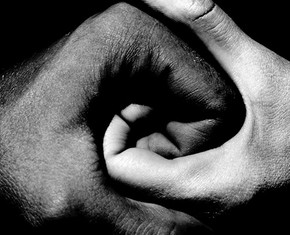The views expressed in our content reflect individual perspectives and do not represent the authoritative views of the Baha'i Faith.
As I get older, I spend more time reflecting on my life—on the right choices I’ve made and the regrets about the wrong choices I could have avoided.
This reflection often takes me back to the innocence and ignorance of my youth, and the things I could have done differently, knowing what I know now. How deeply I wish someone at that time had guided me to the ideas that would have helped me to have fewer regrets now.
So I’ll try to reach out here with a reminder, and a few tips, that will hopefully help reduce the percentage of your regrets in those later years:
1. First, Know Yourself—then Plan for Your Economic Needs
To have a plan or a goal, one has to know for whom they are planning. When we plan for ourselves, we should first know who we are—and ask ourselves: What is the purpose of our lives? The Baha’i writings are very clear about those fundamental questions:
… man should know his own self and recognize that which leadeth unto loftiness or lowliness, glory or abasement, wealth or poverty. – Baha’u’llah, Tablets of Baha’u’llah, p. 34.
One must remember that the purpose of this life is to prepare the soul for the next. – The Universal House of Justice, Lights of Guidance, p. 359.
After answering those fundamental questions, you’ll need to find the answer to a second big question: What do I want? Examining who you are will help you answer what you want.
What we want applies not just to our spiritual needs and aspirations—it means deciding the financial needs we require to live a fulfilling life. Contrary to popular opinion, because our materialistic culture has convinced them that you can never have too much money, many people actually accumulate wealth that is thousands of times more than their needs. They spend all their energies to get more, while the spiritual elements of life pass them by due to their preoccupation with gathering and managing wealth. Can you imagine a sadder tragedy, when we know we do not live on this Earth forever and our days are numbered? The wisdom of the Baha’i teachings advises us to:
Live then the days of thy life, that are less than a fleeting moment, with thy mind stainless, thy heart unsullied, thy thoughts pure, and thy nature sanctified, so that, free and content, thou mayest put away this mortal frame, and repair unto the mystic paradise and abide in the eternal kingdom for evermore. – Baha’u’llah, The Hidden Words, p. 37.
2. Second, Make a Sound Financial Plan—Spiritually
With the pressure of the world’s many problems weighing on us, we all need guidance—both financial and spiritual. People are looking everywhere to find the solutions to problems that have baffled them and have made the experts confused and helpless, too. Even economics can’t escape this problem, because so many economists have tried to completely remove all moral and spiritual values from the economic system. The Baha’i teachings clearly explains where to look for the solutions:
The secrets of the whole economic question are Divine in nature, and are concerned with the world of the heart and spirit. In the Baha’i Teachings this is most completely explained, and without the consideration of the Baha’i Teachings, it is impossible to bring about a better state. – Abdu’l-Baha, The Baha’i World, Volume 4, p. 448.
When we recognize that economics are not simply material but “divine in nature,” as Abdu’l-Baha said, we can then construct a sound financial plan for our lives. To do so, we must plan for financial goals that not only support our physical existence, but smooth the path of the spiritual growth.
3. Plan, not Only for Yourself, but for the Poor
Baha’u’llah’s message of the oneness of humankind implies the prosperity of all human beings, along with the continuing prosperity and stewardship of the Earth that supports us all. That was his wish and his command, and he entrusted taking care of the poor and needy to all of us:
O ye rich ones on earth! The poor in your midst are My trust; guard ye My trust, and be not intent only on your own ease. – Baha’u’llah, The Hidden Words, p. 41.
Reducing the sufferings of the poor whose welfare has been entrusted to us may seem a small task, and this task should have been easily achieved by now, and yet every day more and more people are becoming poor, destitute and homeless. Why? Because an insufficient number of people plan beyond their own self-interests and think of others. Some, of course, think about the poor but do nothing about their plight:
We know that to help the poor and to be merciful is good and pleases God, but knowledge alone does not feed the starving man, nor can the poor be warmed by knowledge or words in the bitter winter; we must give the practical help of loving-kindness. – Abdu’l-Baha, Abdu’l-Baha in London, p. 60.
The end result: the global problem of the great extremes of poverty and wealth threatens the foundation of our so-called civilization. If we do not try to take care of the trust that has been given by God to us, how can we have peace of mind?
The feeling of reaching out to others and considering them as members of one’s family changes our outlook, and that process leads to a better view of the world and our role in it. This gives the mind and soul a sense of peace. If everyone in the world yearns for peace of mind, then helping the poor can help you get there. You don’t have to be wealthy to help; everyone can make a contribution, no matter how small.
In our next journey, none of us will need money. The material world dies the moment we die. The only reality left at that point are the inner spiritual qualities we have been able to gain through our hard work, meditation, service and sacrifice.
That’s the essence of true planning for the future—not only making sure you have sufficient material resources for retirement, but making sure you have the spiritual resources you’ll need for your eternal existence. How sad to reach the end of our physical journey and realize that we have not accumulated enough for the next one, because we were distracted, overwhelmed and obsessed by the material world and forgot to put away something for our spiritual journey:
Ye are even as the bird which soareth, with the full force of its mighty wings and with complete and joyous confidence, through the immensity of the heavens, until, impelled to satisfy its hunger, it turneth longingly to the water and clay of the earth below it, and, having been entrapped in the mesh of its desire, findeth itself impotent to resume its flight to the realms whence it came. Powerless to shake off the burden weighing on its sullied wings, that bird, hitherto an inmate of the heavens, is now forced to seek a dwelling-place upon the dust. Wherefore, O My servants, defile not your wings with the clay of waywardness and vain desires, and suffer them not to be stained with the dust of envy and hate, that ye may not be hindered from soaring in the heavens of My divine knowledge. – Baha’u’llah, Gleanings From the Writings of Baha’u’llah, pp. 327-328.
The Baha’i teachings guide us toward finding the true purpose of our lives. They constantly remind us to stay on course, not be distracted by the temptations of this transient world, and prepare our souls for the moment of our birth into the next stage of our spiritual life.
















Comments
Sign in or create an account
Continue with Googleor